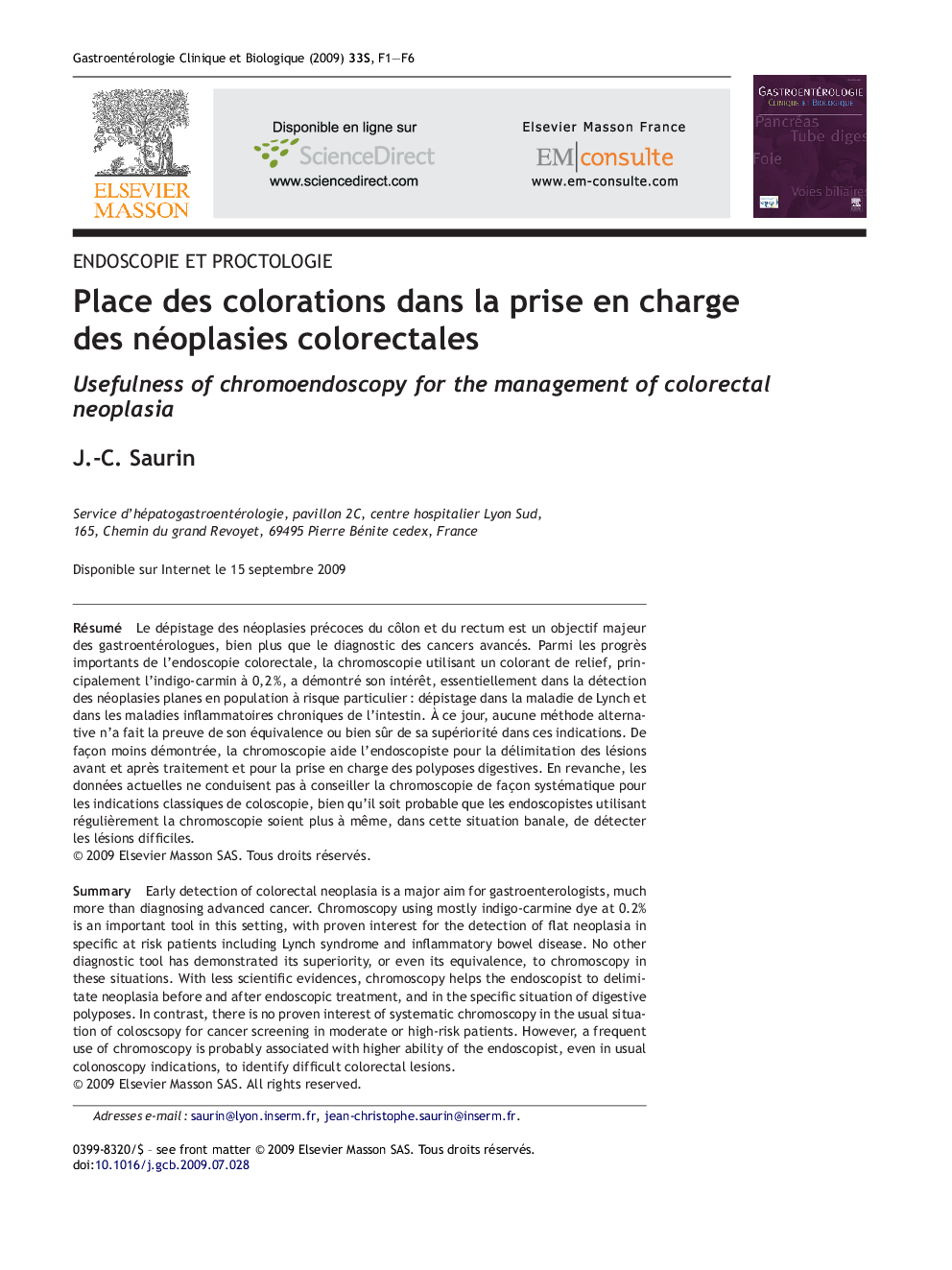| Article ID | Journal | Published Year | Pages | File Type |
|---|---|---|---|---|
| 3290383 | Gastroentérologie Clinique et Biologique | 2009 | 6 Pages |
Abstract
Early detection of colorectal neoplasia is a major aim for gastroenterologists, much more than diagnosing advanced cancer. Chromoscopy using mostly indigo-carmine dye at 0.2% is an important tool in this setting, with proven interest for the detection of flat neoplasia in specific at risk patients including Lynch syndrome and inflammatory bowel disease. No other diagnostic tool has demonstrated its superiority, or even its equivalence, to chromoscopy in these situations. With less scientific evidences, chromoscopy helps the endoscopist to delimitate neoplasia before and after endoscopic treatment, and in the specific situation of digestive polyposes. In contrast, there is no proven interest of systematic chromoscopy in the usual situation of coloscsopy for cancer screening in moderate or high-risk patients. However, a frequent use of chromoscopy is probably associated with higher ability of the endoscopist, even in usual colonoscopy indications, to identify difficult colorectal lesions.
Related Topics
Health Sciences
Medicine and Dentistry
Gastroenterology
Authors
J.-C. Saurin,
